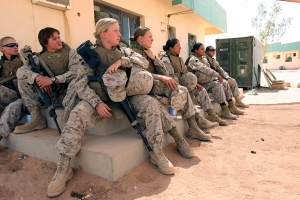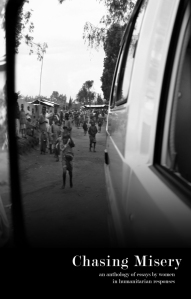By Jill S. Russell:
Surveying the landscape of current news stories on women is grim. There were the raped and lynched Indian girls, the stoned pregnant Pakistani woman, Farzana Parveen, a victim of honour killing and the 270 kidnapped Nigerian schoolgirls. The list continues with threats to lash Iranian actress Leila Hatami; the pregnant Merium Ibrahim, a Sudanese slated for execution for marrying a Christian; Iraqi child brides, everything in Saudi Arabia, the too many women everywhere who are cut,[1] trafficked across the globe for sex, and the question of whether women should serve across all functions in the armed forces of leading Western liberal democracies. Worse than they appear in detail, they seem to share a common thread regarding the place and state of women in the world, which is the assumption that women’s choices can and should be decided for by others. Whether by family, neighbours, society, culture or governance, any aspect of our behaviour, dress, feelings or actions are at the whim of others.
I cannot speak to much of these problems from personal experience, although I hope others will. But in my small corner of the world, I am deeply concerned with the political issues regarding women and military service and what it represents about our place in society and governance. Some will balk at my inclusion of the matter of service in combat roles in this rogue’s roll call, but it is wholly representative of the principle. The presumption being against them, women must argue FOR inclusion, the decision about which will be made by others. On the basis of zero empirical evidence regarding military effectiveness, women were excluded, and now that bizarre historical anomaly has assumed the status of wisdom. Sorry, it’s not, contort yourself all you want. What passes for evidence now too often boils down to the pull-ups and arguments of cohesion that are based in fluff. The fate of the western world will not be decided by a single exercise – to exclude women for the pull-up is so silly on its face I do not understand how it can be argued seriously. More pointedly, the latter hew and cry over cohesion neglects the absolute raw truth that cohesion is forged in shared experience, so true that it almost invariably breaks down every seeming established structure of distrust.[2] There’s more on women in the military, combat, and war, but these are the worst examples of illogic which man the barriers to integration. Of greatest importance, however, the prohibition is odious for its betrayal of the political beliefs of the system we like to hold out to others. We are not all equal under the law. It is both tragic and a bit frightening - if my rights can be constrained in this matter on the basis of my biology, then what is to stop the state in other areas? And if the liberal west cannot throw off the shackles of this moribund ideology of inequality then there is little hope.
None of this is about being against men. I am a woman in military history and contemporary security affairs, I don’t have a problem with men. Quite the contrary, having grown up playing sports with boys, I find men generally rather easy and pleasant to get on with. Throughout my adulthood I have eschewed the title of feminist - on principle I am earnestly and fervently a humanist, we are all the same. I would prefer to keep to my own work in logistics and public order, and out of this debate. But I am well and truly distressed that this sentiment, this assumed sovereignty of one half of the population over the other, because they were born cloven and not cleft,[3] has such vigour in the world.
If hell hath no fury like a woman scorned, imagine what happens when she knows military strategy? You only have to take a real look at international security and war studies to see the ladies are on the rise. I’m not certain at what point I would be driven to become She Guevara, and I won’t speak for the rest, but at some point this becomes intolerable. I’m not certain how many more photos of girls hanging from trees or similar I am willing to abide.
As I said, though, I prefer to get on with my own work.
__________________
Jill S. Russell is a regular contributor to Strife, Kings of War and Small Wars. She is currently writing her doctoral dissertation on American military logistics and strategic culture, with a side project in the London Riots of 2011. You can follow her on Twitter @jsargentr.
NOTES
[1] This is the term chosen by a woman who was the subject of what we refer to here as FGM. I shall respect her wishes on how she would like the practice to be described.
[2] This may be the better explanation for Stockholm Syndrome, that the experience of shared dramatic events or time creates cohesion notwithstanding the matter of formal antagonism between individuals.
[3] Paraphrasing my mother, who unleashed ‘had been born cleft and not cloven’ upon a school principal when he mentioned that my sister’s language was not appropriate for a young lady, her point being that she was none too pleased to hear that had her child been a young man he would not have been in trouble. She’s a corporate litigator by profession. You don’t ever want to be deposed by her. Ever.




